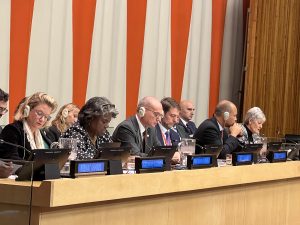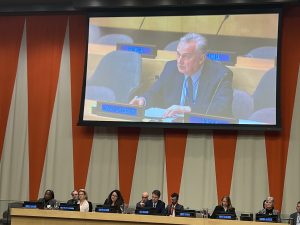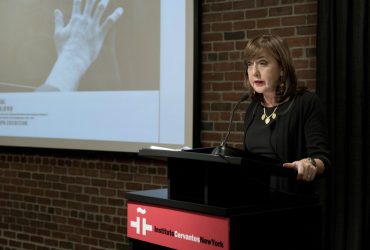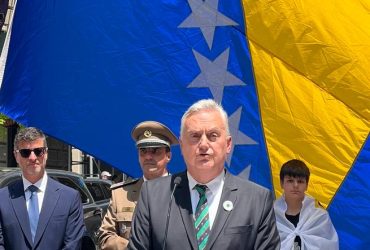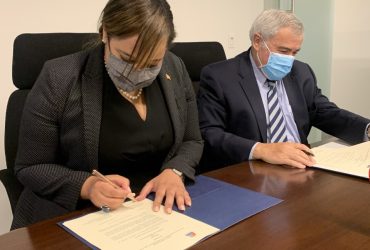Arria-formula Meeting on “Preventing and Responding to Conflict-Related Sexual Violence”
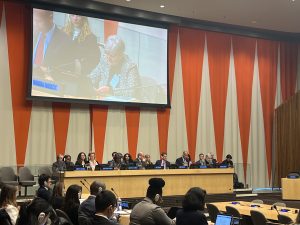
Arria-formula meeting of the UN Security Council on “Preventing and responding to conflict-related sexual violence” was held on October 18, organized by Albania, Great Britain and the USA. Minister for Europe and Foreign Affairs of Albania Igli Hasani presided over the meeting. The President of Kosovo, Vjosa Osmani, and the Head of the UN Expert Team for the Rule of Law and Sexual Violence in Conflicts, Cloe Marnay-Baszanger, the President of the Association “Woman – Victim of War” form Bosnia and Herzegovina, Bakira Hasečić, and the Founder of the Darfur Women’s Action Group from Sudan, Niemat Ahmadi, spoke at the meeting.
The goal of the meeting was therefore to maintain the attention and engagement of the Security Council on the need for stronger unified action against sexual violence in conflict, but also to emphasize the direct link between impunity and the persistence of sexual violence in various conflict situations around the world. The importance of criminalization and responsibility for preventing the recurrence of sexual violence in conflicts was the key focus of this meeting, raising awareness of the need to strengthen national and international mechanisms in the prosecution of perpetrators of sexual violence in conflicts and calling states to account for violations of their international obligations, and the need for states to strengthen legislation to encourage accountability for sexual violence.
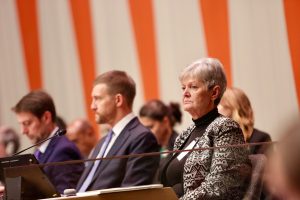 The President of the Association “Woman – Victim of War”, Bakira Hasečić, reminded those present of the long-standing struggle of this association to break the silence about this terrible crime, provide support to surviving victims of war rape, help establish the truth and establish justice for the victims, and contribute to overcoming the past and improving the human rights of women victims of war and their families. She emphasized that the situation with the prosecution of these crimes is particularly difficult, where there is no political will to solve this issue as a priority, and time is running out, because surviving victims, eyewitnesses, and war criminals are dying. Although approximately 700 cases of war crimes against 1,000 persons have been legally concluded so far in Bosnia and Herzegovina, according to her, the processing of these crimes is currently in the phase of the worst results in BiH and in the region.
The President of the Association “Woman – Victim of War”, Bakira Hasečić, reminded those present of the long-standing struggle of this association to break the silence about this terrible crime, provide support to surviving victims of war rape, help establish the truth and establish justice for the victims, and contribute to overcoming the past and improving the human rights of women victims of war and their families. She emphasized that the situation with the prosecution of these crimes is particularly difficult, where there is no political will to solve this issue as a priority, and time is running out, because surviving victims, eyewitnesses, and war criminals are dying. Although approximately 700 cases of war crimes against 1,000 persons have been legally concluded so far in Bosnia and Herzegovina, according to her, the processing of these crimes is currently in the phase of the worst results in BiH and in the region.
Member States’ domestic investigations and justice systems have a key role to play in preventing conflict-related sexual violence and, above all, in ensuring perpetrators are held accountable. It remains imperative for States to strengthen access to justice for women, girls and all survivors in conflict and post-conflict situations, including prompt investigation of sexual and gender-based violence committed by civilians or military personnel.
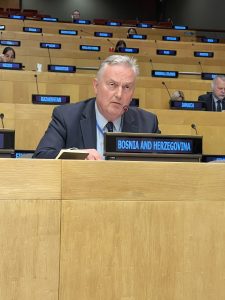 In his presentation, the Permanent Representative of Bosnia and Herzegovina to the UN, Ambassador Dr. Zlatko Lagumdžija, pointed out that it is extremely important to keep the act of sexual violence as a war crime in focus, primarily because of the surviving victims whose dignity was attempted to be killed by this act. Despite this, they found the strength to speak up and move on, to fight for truth and justice with their heads held high. Therefore, this meeting also sends a strong message and provides important support for their struggle. Truth and justice are key prerequisites for reconciliation, but they also contribute to the prevention of these crimes in the future, he emphasized.
In his presentation, the Permanent Representative of Bosnia and Herzegovina to the UN, Ambassador Dr. Zlatko Lagumdžija, pointed out that it is extremely important to keep the act of sexual violence as a war crime in focus, primarily because of the surviving victims whose dignity was attempted to be killed by this act. Despite this, they found the strength to speak up and move on, to fight for truth and justice with their heads held high. Therefore, this meeting also sends a strong message and provides important support for their struggle. Truth and justice are key prerequisites for reconciliation, but they also contribute to the prevention of these crimes in the future, he emphasized.
